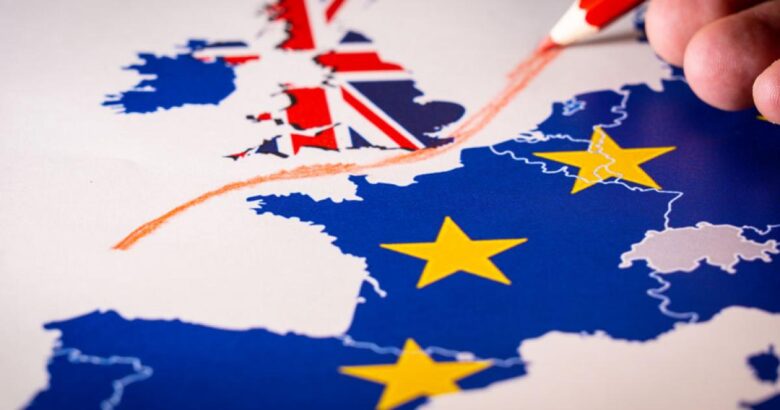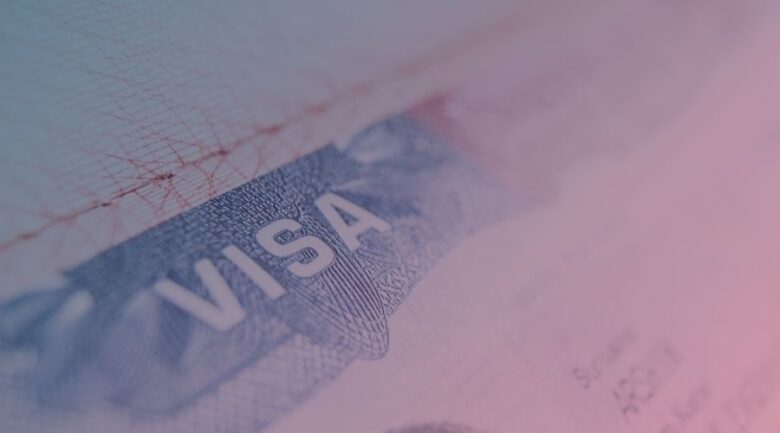Most of you reading this article are well aware of how the UK was always one of the countries with the most complicated migration policies. However, things have slightly changed after they left the EU, but also, after the whole world was shaken by the pandemic of coronavirus.

Source: caixabankresearch.com
Contents
Let’s take a look at how the immigration policy has changed after Brexit
After Brexit, the government has proposed a new set of rules for all residents of the European Union who want to start a new life on their soil, but also for those who wish to expand their business by offering global business mobility visas UK.
Knowledge of the English language and a job offer from the local employer are essential, and their desire was to limit dependence on cheap labor. The proposed measures are the first major change since the seventies when they joined the EU common market.
It will become almost impossible to move here if you are low-skilled and poorly educated because a point system is being introduced – in order to get a permit to live and work. According to these rules, you will need to have a minimum of 70 points, which includes knowledge of English, which brings 10 points, and a job offer which brings 20 to 40. In addition to the job offer, the salary is important. If you are offered a gross salary of £23,000, you will get 10 points, and even 20 if it is £25,600. If the salary is less than £23,000 you will probably not get a residence permit as it does not earn any points.
Getting a work visa isn’t any easier for those planning to migrate from the EU, as they have become equal with those coming from other parts of the world.
Brexit has brought some new rules for tourists too:
- EU residents who do not have a visa will be able to stay for a maximum of six months.
- New residents will be prohibited from receiving state aid and incentives.
- Tourists from the EU will be able to use the existing entrances at airports, although this will also be monitored.
- All new residents should be forced to pay £400 a year into the health system.
- It is necessary to deny the residence permit to all EU citizens who have a file.
- Gradually limit the use of “insecure” EU ID cards as travel documents.

Source: travel.earth
So, how do they plan to stimulate economy recovery after everything that happened?
The emphasis is and will continue to be on highly educated people. Scientists and more educated people will be able to come even without a job offer considering that the government wants immigrants who will bring the best to the country.
Since 2016 and the Brexit referendum, they have been saying that they want to ‘reduce’ the immigration of low-educated people. The government also emphasizes that with this procedure they want to force British employers to stop relying on cheap labor from the EU and start employing the domestic unemployed population for higher wages than those offered to foreigners. It is estimated that there are around 1.3 million people out of work in this country.
How will global mobility visa help?
To understand this, first, you need to be aware of the consequences covid-19 pandemic has had on the economy. In November 2020, the country’s economy experienced a drop of 2.3 percent, and on an annual basis, it recorded a drop of as much as 9.9 percent, which is the most drastic drop since 1709, when a severe cold wave gripped the whole of Europe.
Although the annual decline of the economy has not exceeded 4.1 percent since the Second World War, the situation recorded in 2020, according to the GDP models of the Central Bank of Great Britain, is the largest decline in the last 311 years. The British finance minister said that these figures show that the economy is experiencing a serious shock as a result of the epidemic that has affected the whole world.
Although many have been forecasting a recession period, the country has somehow managed to start the first quarter of 2024 avoiding it. Global business mobility visas may be the thing that helped.
We have already mentioned how the government decided to work on programs to attract people with high-level education, but this was not the only solution. With the global mobility visa, the aim was to attract businesses from outside to come to the UK and investigate the opportunity to expand on their territory. One could say that moving your business activity to this country has never been easier. This type enables managers or other specialists to enter the UK and stay for a year.
Individuals who decide to come to the country on this type of visa can even bring their families along, choose to study, or volunteer for the cause they feel like supporting.

Source: ellisonssolicitors.com
How is the economy now?
The economy grew by 0.3 percent in January, official data showed earlier this month, beating expectations as it continues to battle what economists see as an inevitable recession.
The services sector grew by 0.5 percent in January 2024, following a decline of 0.8 percent in December 2022, with the largest contributors to growth in January 2024 coming from education, transportation and storage, human health activities, and arts, entertainment, and recreation activities all rebounded from declines in December 2022. On the other hand, manufacturing fell 0.3 percent in January after rising 0.3 percent in December, while the construction sector fell 1.7 percent in January after falling the previous month. So, the feelings about how will it all work out for the UK are mixed.
As the first birthday of the GBM program is slowly approaching, we will be able to reflect and see what are the effects of it, and whether will it be able to give the recovery process a boost.
